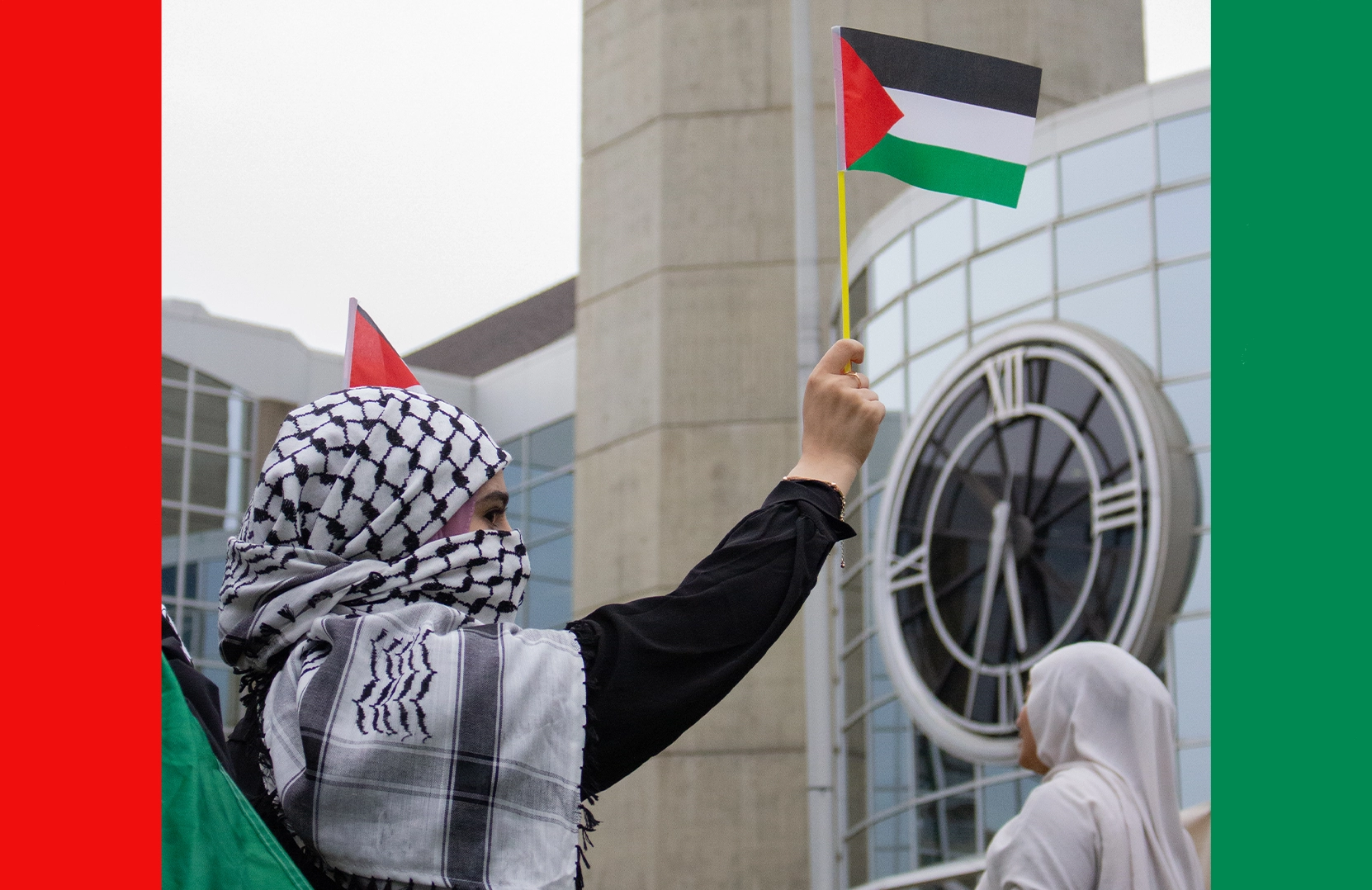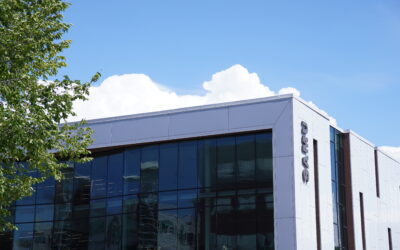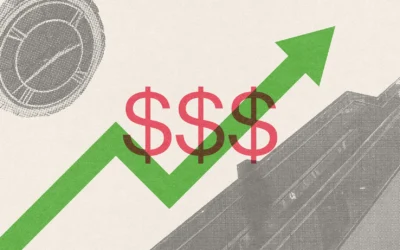Originally published on November 1, 2024.
A year has passed since the events of Oct. 7, 2023, and while students at MacEwan have been protesting the violence in Gaza, MacEwan leadership and faculty have continued to stay silent.
Whispers around campus
An email response to the Griff from the Faculty for Palestine, which is a network of academic faculty across Canada who oppose Israeli occupation/colonialism, says “we have been [made] aware by faculty at MacEwan University of incidents of harassment and intimidation by university leadership for faculty support of the student’s campaign People’s University for Palestine. These reports have included threats to academic freedom and job security.”
“Although I think, obviously, the University of Alberta has responded to this horrifically, it almost seems that MacEwan’s environment is worse,” says Beth Capper, a professor in the department of english & film studies at the U of A. Capper is a member of Faculty for Palestine.
The Griff reached out to MacEwan for clarification on directions or policies for professors who are uncertain about discussing the ongoing conflict. In response, Lara McClelland, vice-president (university relations) at MacEwan, issued the following statement:
“Thank you for the questions. Town Halls with every Faculty and School have occurred over the past few weeks where attendees had an opportunity to address your important issues and any concerns. Those are the appropriate forums for discussion and engagement with faculty. The Griff is not the forum to engage and communicate with the academy; there are appropriate and effective forums, processes and engagements already in place.”
While McClelland did note processes and engagements in place, she did not elaborate any further.
Capper says sessional instructors at MacEwan may be too afraid to speak up about the ongoing violence in Gaza out of fear of job security. “They don’t have to say we’re not inviting you back because of your Palestine protest; they just have to say we don’t need you anymore.”
A MacEwan professor, who requested to remain anonymous, describes the tension between the desire to speak out in protest while maintaining a position for career advancement, “People, I think, have been as savvy as they can be in terms of threading a really weird needle. I’m pre-tenure. I want to do this for the rest of my life. I really value the work that I do, and I don’t want to do anything that would jeopardize that.”
David Kahane is a tenured, Jewish professor at the U of A who has been vocal about his support to end the Israeli occupation. At times, he wonders if protesting will affect his career, though he says his position as a tenured professor and his union, the Association of Academic Staff of the University of Alberta, protects him. Similarly, Capper is a tenure track professor and is protected by her union, meaning actively protesting has not disrupted her employment.
In an email response, the Grant MacEwan University Faculty Association (GMUFA) president, Bob Graves, says “at MacEwan, we are fortunate to have excellent language in the Collective Agreement that protects the academic freedom of faculty. In spite of those protections, I would not be surprised if members of the faculty find it challenging to approach the subject of the ongoing situation in Palestine and Israel.”
In article 29 of the collective agreement between the faculty association and MacEwan, there are generous descriptions of how academic freedom is supported at MacEwan.
Specifically, article 29.6.1 of the agreement says that academic staff “have a right to personal and professional opinions, no matter how unpopular they may be, and to state these publicly without censorship or fear of harassment or reprisal.” The article also notes that staff do not speak on behalf of the university unless authorized to do so.
Graves notes that it is possible that precarious faculty— those working on short-term contracts— may self-censor out of fear of not receiving a new contract at MacEwan.
“I am holding my breath until I get tenure, and then I feel like all bets are off, in terms of me being quiet anymore,” says the anonymous professor. When speaking about the silence on the subject at MacEwan, they mention several professors and students in Canada and the United States who have been punished and targeted for speaking out.
In a move that sparked controversy, U of A president Bill Flanagan called on Edmonton police to clear an encampment in May. University administrators initially announced a one-year ban for all those involved, although Flanagan later made verbal commitments that anyone involved would not be punished. However, Kahane is skeptical, “I think that any thinking person, students, staff, or faculty involved in advocacy for Palestine knows that there is some risk associated with it, that the line from the university could change, that the pressure from advocates for Israel could change, that the position of government could change and I don’t trust them to hold the line.”
Is there really academic freedom and freedom of expression at university?
For professors, academic tenure is a method of ensuring academic freedom as a guarantee to protect them from being fired without cause. Tenure allows professors to discuss controversial ideas so as to advance knowledge and insights into those ideas. Academic freedom and freedom of expression are the basic tenets of universities. These principles allow for the cultivation of knowledge through rigorous debate among faculty and students.
MacEwan’s policy on free expression states:
“They have the right to speak, to write, to listen, to challenge, and to learn. While some people may find specific opinions unwelcome or even offensive, a university is the appropriate venue for all points of view to be tested through the scrutiny brought by discussion and debate. MacEwan University will not restrict the time, place, or manner of lawful conduct, except where it threatens to disrupt the ordinary activities of the institution. Individual members of the University community, and not MacEwan University itself, must judge the validity of ideas that have been shared and, where warranted, contest those ideas in a spirit of mutual respect, rather than seek to suppress free expression. Through rigorous exchange, some points of view will be validated, and other points of view will be discredited.”
The policy applies to all community members of MacEwan, including students and faculty. The only limit within the policy is that community members can’t break the law, defame people, harass or threaten people, or invade privacy or breach whatever confidentiality they may be bound by.
Another MacEwan professor who wishes to remain anonymous notes that any university’s leadership can use other methods to direct professors and instructors. Administrators can say “Hi, I’ve reviewed your application, but I’m sorry — good luck to you,” they explain. “I’m sure you’ve got good credentials; I’m politely refusing to give you a job or a promotion simply because I have discriminatory attitudes, which I’ve hidden from everybody else.”
The same professor says universities have shifted towards a corporate model of education, a consequence of neoliberalism, which is an ideological philosophy that favours market-based economies. They liken academic freedom, freedom of expression, and academic integrity to how corporations view corporate social responsibility.
“Every other company wants to promote itself because their objective is to get more customers. They know that the buzzword these days is sustainability, green stuff, ‘greening the economy.’ So, these are like gimmicks that they use to attract you. Similarly, on campus, people would say, ‘well, there’s academic freedom’, but is it there?”
While the professor says that their department has not limited their academic freedom or freedom of expression, he has been careful about what he writes and says.
Protests continue to land on deaf ears at MacEwan
At the time of writing this article, the violence continues, and numerous protests have taken place at MacEwan to demand that leadership disclose investments with companies that are complicit in the conflict, divest from those holdings, defend the right to protest, and declare its support for an end to all Canadian military contracts with Israel. Approximately a week after the events of Oct. 7 last year, MacEwan students demonstrated outside MacEwan University’s Robbins Health Learning Centre. This past June, student protestors set up sit-ins outside MacEwan University and disrupted a MacEwan board of governors meeting. On Oct. 10 this year, student protestors asked President Annette Trimbee pressing questions during MacEwan’s State of the University Address. In response to protestors asking if MacEwan had told faculty to not discuss Palestine, Trimbee said, “No faculty have been told they cannot speak their mind.”
Photo by Amanda Erickson





so glad this work is being done!! amazing reporting
shame on macewan